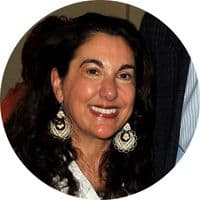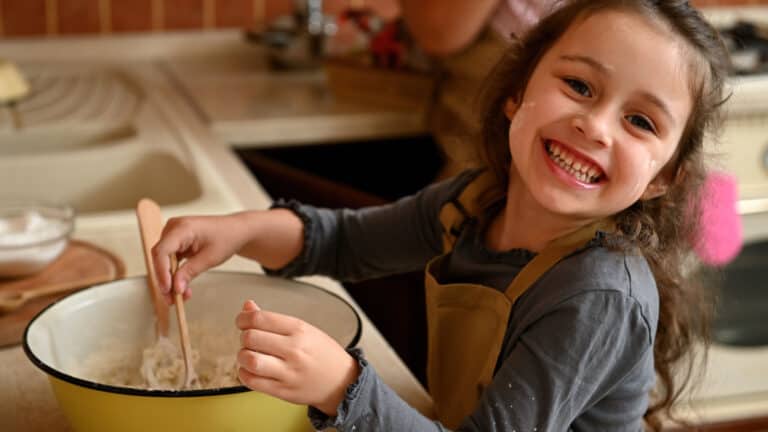Love Out Of Bounds: On Motherhood, Madness & Creativity
My eyes are hot, then wet, my tears like someone else’s. I am writing my first novel, imagining the point-of-view of the brother, Doren, who struggles with schizophrenia. Alone in my studio in a fifth-floor walk-up in Hoboken, New Jersey, I look out onto the hills festooned with crumbling tenement buildings, straining to get inside the character of Doren, to be him.
My first novel is called Can You See Me? The title comes from a line of Doren’s when he asks his sister if he is visible. Doren is often confounded about inside and outside, vision and reality. It also refers to Sarah’s invisibility as the sibling of a brother with severe mental illness, her brother’s significant needs and struggles eclipsing her own.
Can You See Me? is the story of both Doren and Sarah Solomon, a brother and sister so close they share a secret place, imaginary world, and private language during childhood. While Sarah eventually grows up and relinquishes their private haven, Doren holds fast to their enveloping world. What happens when the person you love most, best, falls prey to schizophrenia?

This is my story
That day, a sweltering July afternoon, where the air feels more like vapor, I knock off early. My husband, Michael, and I are due at an appointment with a genetics counselor in New York City.
Not only does my older brother struggle with schizophrenia, so did my husband’s late father. His mother, a survivor of three concentration camps who died prematurely when he was sixteen years old, experienced crippling depression, delusions, and paranoia, what we now know to be post-traumatic stress disorder or PTSD, but which did not have a name while she was alive.
At that time, Michael and I both volunteered at Fountain House in New York City, a haven for people with schizophrenia. I taught creative writing, and Michael worked with his clients on computer skills. The work was fulfilling and redeeming, as we were not able to help our loved ones with schizophrenia as much as we hoped.
We are not sure, Michael and me, whether we want to have kids. We long to, but the thought of having a child with schizophrenia, the most severe form of mental illness, is terrifying.
Our risk, we discover, is about twice that of the general population, but low enough that we are not scared off prospective parenthood. As we are hemming and hawing about whether to have a baby, I am already pregnant.
At thirty-seven, I’m classified as a “geriatric mother.” I feel doubled and halved. I do not glow. I have pimples and rashes, hemorrhoids and gastroesophageal reflux. I live my life according to where I’ll find the next bathroom. My breasts grow to freakish proportions. Already an insomniac, I find it difficult to fall asleep and even more challenging to get up. I have leg cramps and pink toothbrush. My feet and ankles swell. Brain fog fumes.
And yet, magic. I feel our baby’s heartbeat, three beats inside each of mine. I imagine their eyelids part, then open. This heartbeat within a heartbeat, the swimming of arms and legs, each has a tempo, sequence and colour.
I write, keep writing. Leaving my besieged body behind, I complete Can You See Me?
What a blessing to offer perfect care without effort! Maybe this was my curse, how little expecting prepared me for motherhood.
Birth
I never thought of it. Never imagined Tobias Brandon’s separate weight sinking down onto my emptied belly, never pictured his damp head in my palm, the pulse alarmingly visible through soft fontanelles, never considered the black screaming hole: his mouth, wanting.
We weren’t ready. Just a few weeks before Toby’s birth, we moved to a rented ramshackle Victorian on a dead-end street in Montclair. All was chaos, boxes everywhere. Yet, I had the most beautiful writing space I’d ever had in my life or since: a tower room with an adjoining library. Being in there felt like being inside and outside at the same time, up in a treehouse, with a long view onto the world. What would I write in here?
Would I ever write again?
The pain lingered, an episiotomy cut the size of a doctor’s panic, dark red starbursts inside my eyes, a leaking bladder, battle scars that made me love Toby all the more with a fury that seemed right, the cost of making his life, the weight and force of it on mine.
Toby screamed straight through his first three months of life. Purply wet scrunched squalling face. Knees jack-knifed to chest. Ugly mad. He had two modes: screaming or sleeping. To soothe him, I pounded the pavement each day, hitting all the local parks and then some, walking for hours. My husband did the drill pacing our dead-end street all night or taking a midnight drive to Toby’s slumber. We thought: we’ve got a bomb swaddled in blankets.
If a pregnant belly draws touches from strangers, a screaming baby elicits advice and remarks. Try putting him on his tummy! You feed that child? Maybe he needs a change. Got a good pair of lungs that one.
Would I ever write again?
At three months, Toby’s colic ceased. The caterwauling stopped, like turning off a light switch. Toby only cried now if he was hungry, tired, or needed a change. Needs I could satisfy.
I fell in love as his toothless mouth opened in a big fat “O,” when he cooed ah goo, a long beautiful sound. When he smiled his first smile, a wide open loopy grin.
However, after the rondo of calming feeding changing bathing calming feeding Toby, I had nothing left inside. The profound sleep deprivation of the first few months pulverized my brain into porridge. The room inside my mind where stories live, often lit bright, sometimes by a flickering candle, had gone cold and dark.
Would I ever write again?
I needed a break, or I would break
You see, writing had always saved my life. Before becoming a mother, even as a child, my identity was as a storyteller. As children, my brother and I were often left alone in the house, alone together. We took off exploring the golf course that ran behind our house, collecting found treasures—a silver-veined stone, a broken watch, and of course dozens of stray golf balls that could be peeled and used for Jacks, paddleball, or displayed as a collection. As we wandered around, we made up stories out loud.
Our parents, two doctors, were largely absent. And when they were home, they fought, their voices sharpened like instruments. My father drank. My mother took pills.
Our home was decorated like a jungle. A dense, long-haired scarlet and green rug stretched from wall to wall like untended grass on fire. There were plants on every surface, in every corner, suspended from windows and ceiling. The rest of the décor consisted of torpid animals: tropical birds hung as mobiles, a stuffed tiger doubled as a chair, and a giant, squashed-can giraffe stood sentinel at our front door entrance. My brother and I were not at home in this house; we both loved animals more than people. And like the frozen creatures surrounding us, we felt trapped.
Creating stories enabled me to escape. Making up a story yielded a shape in the chaos, the trauma, the abandonment, pain and confusion. The act of molding a story that might enthrall and move a reader or listener, at first my brother, then encouraging teachers, and later my husband and friends, sustained me.
As a new mother, I knew I needed to write in order to be myself. I was lucky to find a sitter who was available to watch Toby for a couple of hours a few times each week. That window of time was my own.
Unfettered with baby and baggage, I still walked and walked. I hoped walking would catalyze stories as it had during my childhood and before having children. Walking and writing.
After my long, solitary rambles, I stopped into a little café called The Cheese Shop that had great coffee and muffins. Armed with my journal, I sat alone and wrote. I knew the experience of motherhood, like all the big things in life, would yield rich material. Eventually. Now I needed to keep notes.
Where’s The Baby?
There was a coffee klatch of at-home moms who met up at The Cheese Shop. They had seen me hugely pregnant and saw me now. One came over to my solitary table.
“Where’s the baby?” she shot out.
For a moment, I was speechless. Not hello, not how are you, not I’m Monique and do you have a name?
Where’s the baby?
The subtext and reproach stunned me.
The next time and the time after that I was prepared because this comment came up a lot!
Learning Mandarin
Bunjee jumping
Doing a moon walk.
This did not endear me to the local clique or help me make new friends. At the time, there was a painful rift between at-home moms and working moms. We were all struggling so hard! It’s much better now and women support each other’s choices. Honestly, I felt more attuned with working moms. I was a writer. Writing was my work. Motherhood was my work. I was home.
During Toby’s toddlerhood, Michael and I discussed having a second child. We wanted to give Toby a sibling and I longed for a girl. Besides, my friends with large broods insisted that having one was harder than having two or three. When Toby was a few months shy of three, I was pregnant with our second.
Would I ever write again?
The Right to Write
The challenges of being a writer are significant for women but can feel like impenetrable obstacles for mothers. The biggest bugaboo: the right to write. The right to write if it takes time away from mothering, from my children. The right to write if no one is waiting for the story or article or novel I am creating. The right to write if I do not achieve fame or fortune.
When Toby was three-and-a-half years old, I gave birth to a second child we named Rosamond Mara, assigned female at birth. Rosamond was a calm sweet tranquil baby. However, it was clear by age two that Rosamond identified as male, insisted on being called, “he,” told everyone they were “a boy”, and declared that they possessed a penis. Motherhood is full of surprises.
We supported Ro in his identity during childhood, and later, when he transitioned to male. In late adolescence, he decided to call himself Gabriel, the name we had chosen for a boy. Gabriel is now a transgender man.
No Right To Write
If Toby’s infancy was tough and rewarding, his toddlerhood with a new baby at home, was both joy and nightmare. Toby was a bright, loving and beautiful boy, with boundless energy, tenacity, and curiosity, but if he had three frustrations in a row, he would go off into a major temper tantrum so intense it was like an epileptic fit. These fits did not happen often, but when they did, they were traumatic and humiliating. Why humiliating? Because they made me feel like a bad mother.
I remember the climactic final tantrum which occurred when Toby was three and three-quarters. Gabriel was three months old. It was a shimmering golden autumn day and Toby’s co-op preschool had planned a trip to a pumpkin farm. I was the helping mom that day and booked a sitter to watch Gabriel at home so that I could give Toby my full attention.
In truth, he was often stressed when I was the helping mom. Though it was thrilling to have me there at school, he had to share me with all the other kids. There were other frustrations that day.
(1.) Toby was let down that we couldn’t take our car to the farm. (2.) Toby was frustrated that he couldn’t bring his best friend Alden along. (3.) Toby felt thwarted when he was forbidden to take home an enormous misshapen pumpkin that must have weighed about thirty pounds. And then there was the biggest frustration of all: a new baby at home that demanded so much of Mom’s time and attention. Toby was not an only anymore.
When we got back to the preschool playground, Toby went off. Words became chants which built into screams. Toby arched his back, ripped off his jacket popping loose buttons. He grabbed my glasses, threw them onto the mulchy leaf-strewn ground. I hoisted him into my arms with great difficulty. He was a big, husky toddler, all dense weight. His legs and arms were a windmill as he pummeled my back with his fists, kneed my stomach, kicked my shins. I finally got him to our car and strapped into his seat.
A hot tingling shot up my arm, which flew back—I wanted to smack his screams into silence–anything to stop that sound. I looked into my son’s furious face, my arm trembling, and the tingling let up into numbness. My arm dropped: useless baggage.
It is hard to share this. I know I am being judged. I judged myself: I was a horrible mother. Not up to the task. An evil mother. I had no right to have a child. I had no right to write.
At home, Toby went to his room, climbed into bed, and fell immediately into a deep sleep. I relieved the sitter and nursed Gabriel, putting him down for his nap.
Then I sat in a stiff-backed chair, unable to move or speak, frozen with dread. I knew from past experience: if Toby was reminded of his tantrum trigger upon awakening, he could have a reprise.
Would I ever write again?
Toby’s preschool teacher called me at home to check in and make sure I was all right and to ask after Toby. “Toby feels things so deeply,” she said. Indeed.

Late Bloomer
I was late-blooming both in motherhood and becoming a published writer. My first novel, Can You See Me? finished before having Toby, did not come out until I was forty-five years old, eight years after completion.
On one of my visits to see my older brother in a halfway house for people schizophrenia, I shared pictures of Toby, Gabriel, and our family. My brother smiled at me and said, “Home is the place where when you have to go there, they have to take you in.” His high hard laugh rang through the room, indistinguishable from a scream.
“Over here,” I said, not making much sense, realizing how lonely and unreal it is to miss someone who is right there.
“Was it unbearable at the hospital?” I asked. “How did you get out of there?”
“No bolt was necessary. I reimburse their equilibrium. But you I love out of bounds.”
For me, it was his most lucid sentence all afternoon.
As I write, I’m a relatively new empty nester. Some days I feel bereft. The house is too quiet, the rooms too empty. Others, I bask in the fact that my children are thriving. Now, there is all this time, this space.
On my desk in a place of honor, I still have the heart-shaped, hand-made Mother’s Day card Gabriel made for me in Grade 3. He wrote: My Mom is special for the following reasons: first, she’s the most supportive person I know. Whatever I’m doing, she’ll encourage me to the maximum. Second, she’s understanding. Whenever I tell her something that concerns me, she’ll take it seriously. Finally, my mom is resourceful. Whenever I make a BIG mistake, she can fix it like that! As you can see, I respect and appreciate everything my mom does for me.
I look at this card every day when I begin my writing and feel warmth and courage, a word closely related to the French word, coeur, for heart. One message that was instilled and internalized by my children is that creativity needs a space to exist, to survive and thrive. I hope their creative endeavors will sustain them as my own writing sustains me. It is a joy, my anchor and compass.
Liked this essay? Read Ami Sands Brodoff’s “The Long & The Short of It: On Marriage and a Crazy Big Height Difference”







